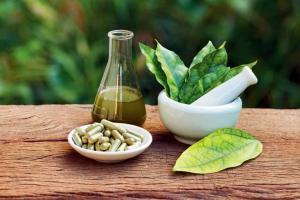While social media is abuzz with ayurveda and homoeopathy as preventives against COVID-19, scientists warn against such claims, advising social distancing and hygiene as non-negotiable measures

Scientists have cautioned that there is no scientific evidence to suggest that ayurveda or homeopathy can prevent COVID-19 infection
Amid the panic around COVID-19, alternative medicine is being desperately promoted as a treatment, especially to boost immunity. At such a juncture, scientists from the country have issued a public statement on such cures and immunity boosters with a scientific explanation that there is no evidence suggesting successful use of any of these treatments in COVID-19. They have cautioned that these are not alternatives to other precautions that need to be taken such as social distancing, washing hands, etc.
ADVERTISEMENT
The statement reads, "As of now, no scientific studies show that any substance boosts the immune system specifically against COVID-19, be it modern medicines like hydroxychloroquine or homoeopathic solutions like Arsenicum Album D30 or ayurvedic preparations. These so-called remedies and/or immunity boosters may give people a false sense of security. Some people may wrongly assume that they won't be affected by COVID-19 anymore, leading to risky behaviours such as not using a masks, not washing hands, or not following physical distancing protocols. Such unintentional violation of guidelines may have disastrous results."
While there are several social media posts, there have been instances when even people from government have backed such practices. For example AYUSH ministry supporting homoeopathic and ayurvedic products as defence against COVID-19 and the TN government issuing a circular about the efficacy of a herbal powder. Explaining the need for such a statement, Aniket Sule, scientist at Tata Institute of fundamental Research, said, "There are lots of social media forwards suggesting unproven treatments to fight COVID-19. We want to caution people that there is no scientific evidence to suggest that they work against COVID-19."
The statement concludes, "Colloquially, many people use the word "immunity" when they actually just mean "good health". While a healthy diet and exercise improves a person's general health (and the capacity of their immune system), this cannot make him/her immune to COVID-19. The most severe cases of COVID-19 are made worse by an overreaction of the immune system. So trying to boost general immunity or trying to interfere with its regulation using untested methods, may be risky. Claims such as benefits of drinking cow urine, exposing people to UV light or injecting with disinfectants, are not supported by scientific evidence, and are harmful to the human body. Similarly, while some supplements such as garlic may be harmless, others such as zinc or Datura seeds, if taken in excess, are toxic."
Busting hoaxes
'The Hoaxbusters' — a group from the Indian Scientists' response to COVID-19 has issued new set of slides answering several questions around COVID-19 at https://indscicov.in/
Catch up on all the latest Mumbai news, crime news, current affairs, and a complete guide from food to things to do and events across Mumbai. Also download the new mid-day Android and iOS apps to get latest updates.
Mid-Day is now on Telegram. Click here to join our channel (@middayinfomedialtd) and stay updated with the latest news
 Subscribe today by clicking the link and stay updated with the latest news!" Click here!
Subscribe today by clicking the link and stay updated with the latest news!" Click here!






